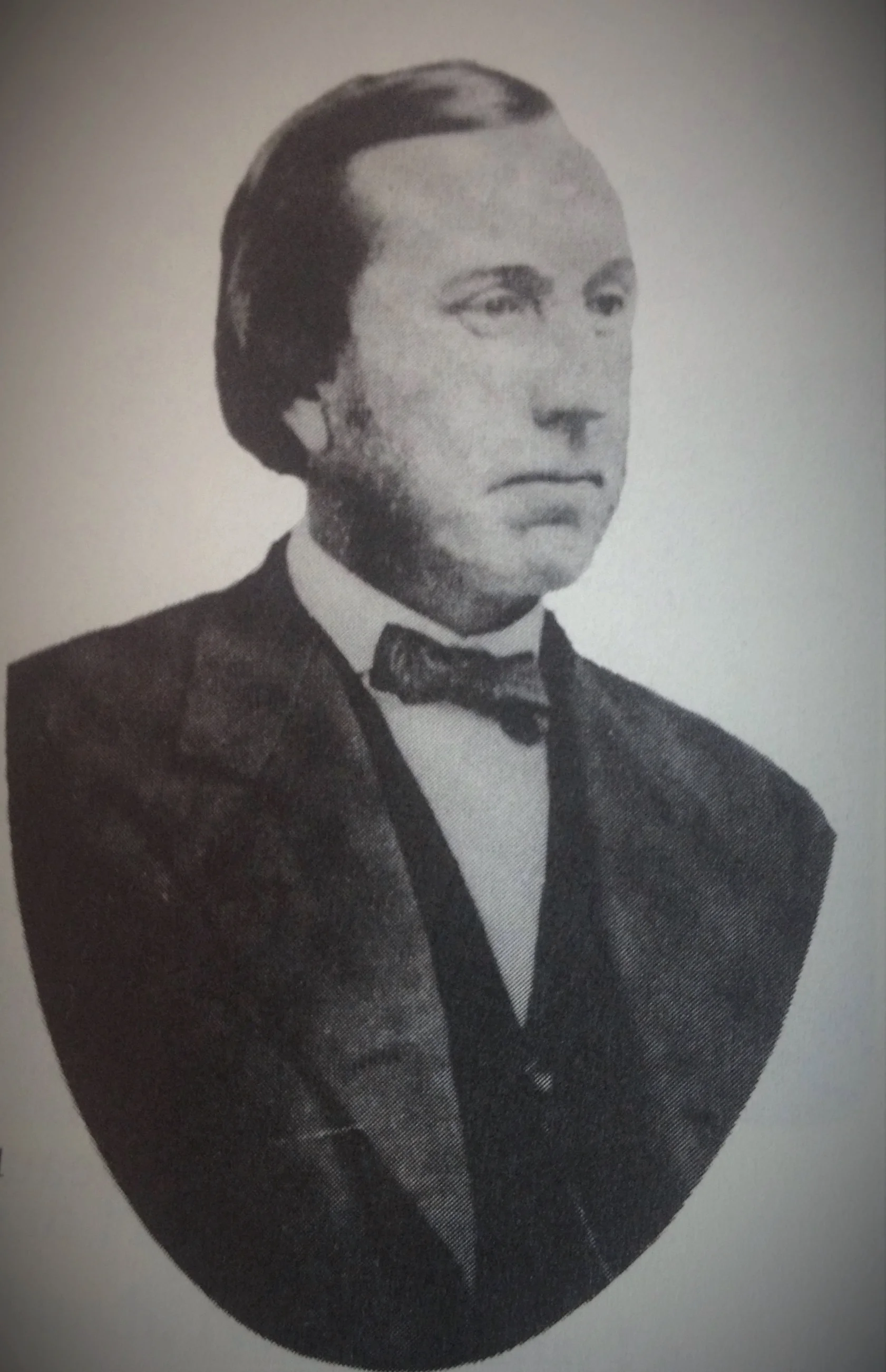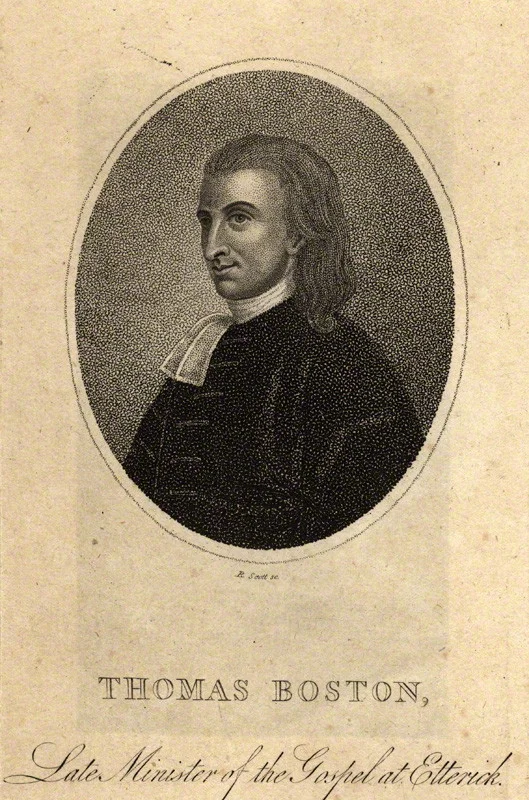Sermons
James Dodson

The pulpit at St. Peter's where Calvin preached in Geneva.
SERMONS BY EMINENT COVENANTING PRESBYTERIANS.
[AND OTHER REFORMATION GIANTS]
"Preaching the Word is prophesying in the name and on behalf of Christ. Through preaching those who hear are called into the state of grace, and preserved in it."—William Perkins, The Art of Prophesying (1592).
Lectures and Sermons:
1522-Martin Luther.-The great Reformer discusses what we should understand by the proposition that God so loved the world. These sermons discuss the mediation and salvation held forth in Christ.
1638-Alexander Henderson.-This is the sermon preached on the occasion of the excommunicating of several episcopal prelates, at the beginning of the Second Reformation in Scotland, declares wherein true ordination stands and announces the ascendance of a revived jure divino Presbyterianism.
1522-Martin Luther.-Two sermons which discuss the relation of faith to temporal and spiritual blessings.
1779-John McMillan II.-An ordination sermon for John McMillan III, setting forth the duties of the faithful minister.
1644-Alexander Henderson.-A sermon detailing the great need and method of reforming both the church and the nation together with a dire warning to magistrates that will not be reformed.
1803-Alexander McLeod.-A discourse on the Mediatorial character of Christ and the importance of this doctrine with respect to the duty of nations favored with the light of the Gospel.
1841-Thomas Sproull.-A sermon on the doctrine of social covenanting together with how covenant keeping holds the key for Presbyterian reunion.
1808-Alexander McLeod.-An ordination sermon for Gilbert McMaster, wherein M’Leod gives a very full discussion to the character of the Gospel ministry and its use in the church.
1880-James Kerr.-A sermon calling for Christians to follow in the footsteps of the flock by adopting the piety, enlightened views and Christian patriotism of the Scottish martyrs.
1875-John L. Girardeau (1825-1898).-This sermon expounds upon the Regulative principle and its necessity in the life of the church especially in the exercise of ecclesiastical power.
1875-Thomas Sproull.-A sermon addressing three chief requirements for a legitimate constitution of civil government.
1852-James W. Shaw.-A communion sermon that addresses matters of ecclesiastical fellowship and the use of terms of communion.
1820-James Renwick Willson.-An excellent presentation of the doctrine of the Mediatorial reign of Christ and its implications for all nations and kingdoms. This is the Covenanter postmillennial vision.
1821-James Renwick Willson.-A sermon showing that the obligation to civil government as well as the obligations of the civil magistrate are founded and grounded in the Moral Law particularly as it is to be discovered in the Fifth Commandment.
1819-John Black.-A synodical sermon that explains why the false charity of intercommunion amongst various sects of Christians is contrary to a sound profession and practice of the true religion.
1810-Gilbert McMaster.-A sermon on national covenanting together with the duty of nations that are favored with the light of the Gospel to engage in this ordinance.
1803-Samuel Brown Wylie.-A sermon that demonstrates the Scriptural basis for the doctrine of covenanting which also explains how and why social covenanting can bind descending generations.
1794-John Anderson.-A sermon which explains what happens when men are given over to hearing the ministrations of erroneous teachers. Anderson discusses the doctrines and practical reasons for maintaining confessional integrity by avoiding sectarian ministers or ministers not of one's own communion.
1779-John Fairley’s Ordination sermon for William Steven. This sermon discusses the nature of the Gospel ministry and why God has entrusted the work of preaching to sinful men.
1713-James Fraser [of Brae] (1639-1699).-A devastating critique of prelacy and all of its attendant evils and corruptions.
Robert Traill.-A sermon detailing the difficulty and carefulness that is to attend the ministry together with exhortations for those who are not in the ministry but seek to profit by it.
1676-John Welsh (of Iron-gray)(ca. 1624-1681).-An excellent sermon, preached during the times of persecution when the Covenanters were being shut up to field conventicles. This outlines the great topic of the Gospel and its command to be believed by all who hear.
1696-David Clarkson (1622-1686).-Clarkson explains why public worship is more important than private worship without dismissing the need for the latter.
1650-Patrick Gillespie.-A sermon warning about the dangers posed to a people by the wickedness of their rulers with some explanation of the covenantal solidarity of the moral person of nations.
1714-Thomas Boston (1676-1732).-A fast sermon wherein the crimes of Rome against Britain are recounted along with the present struggle against Romish supremacy. In the course, Boston defends the Protestant doctrine that the papacy is Antichrist.
1679-Thomas Manton (1620-1677).-A series of Puritan sermons defending the Protestant doctrine that Rome is Antichrist and that the Pope of Rome is that Antichrist seated in the temple of God--the church. These were published posthumously with a recommendatory preface by Richard Baxter.
1825-James Renwick Willson.-A sermon advocating an optimistic future for the church on earth and a call not to fret but to remain faithful is bearing testimony to the truth not compromising with error. In the end, the church will be victorious and the earth will be filled with the glory of the Lord.


















![The sin and danger of countenancing the administrations of erroneous teachers pointed out : [in] a sermon preached at Chartiers, in the county of Washington, Pa.](https://images.squarespace-cdn.com/content/v1/5519d094e4b08a0cc608b841/1751987718372-XBBPRD5UFE78P7WXYP1R/John+Anderson+restored+black+and+white.jpg)










